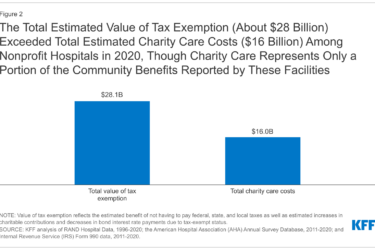
The New York Times Magazine recently looked at the prolonged fight against the Affordable Care Act (ACA) waged by Heritage Action for America, the political arm of conservative think tank Heritage Foundation, which has helped populate the Trump administration both in and out of health care.
Vice President Mike Pence and Health and Human Services Secretary Tom Price are Heritage supporters and have brought in like-minded associates.
But, as we have seen, the task of repealing the ACA is hard, in part because the legislation has changed the health care landscape in so many ways. Polls are showing a bit of a “be careful what you wish for” decline in the number of Americans who want to get rid of the entire thing. Robert Draper, an insightful chronicler of the right, reviews the shortcomings of the law’s performance – some of which has been exacerbated by GOP opposition. He writes:
“In spite of all this, Obamacare has done far more good than its critics predicted it would. As of 2014, insurers cannot deny coverage to anyone based on their current health status – a meaningful protection for the 133 million Americans with chronic illnesses. Over 15 million poor or near-poor citizens are now receiving Medicaid benefits in the 31 states (as well as the District of Columbia) that have opted for this expansion. Another 3 million Americans under the age of 26 have been allowed to stay on their parents’ health care plans, thanks to the provision in the ACA that Heritage Action warmly refers to as the “slacker mandate.” Meanwhile, during each month that Obamacare has been in existence, the private sector has grown. The bill has not proved to be the “job killer” apocalyptically described by its Republican opponents.
Now that the law is in place, trying to tinker with it in a measured fashion, deciding which parts to discard and which to keep, would be more complicated than simply determining what the public likes and what it doesn’t.”
Draper provides an insightful account of how Heritage Action and its Chief Executive Officer Michael Needham have inculcated what Draper calls “a ceaseless lust for Obamacare repeal.” The piece perhaps somewhat understates how much conservative business groups, such as the National Federation of Independent Business, also hate the law and it didn’t mention the Koch brothers or the American Legislative Exchange Council. Of course there are many interlocking connections in funding and networking among anti-ACA advocacy organizations.
But the history of the individual mandate, which has become sort of a given wisdom in D.C. and is recounted in the article, is worth looking at because of how it has affected the politics and the rhetoric.
The Heritage-as-mandate originator is not the only creation story, but a mandate does appear in a 1989 Heritage paper by Stuart Butler. Butler, incidentally, did not keep moving rightward with Heritage and relocated to Brookings Institution a few years ago. He does still advocate significant change to the ACA and a shift to a larger state role in health policymaking.
Other accounts trace the mandate idea back to Mark Pauly, a Wharton health economist who worked for the first Bush administration. He doesn’t take full credit, instead attributing it to a “group of academics.” (Pauly still supports the idea, by the way.) The individual mandate was part of a short-lived Bush Health Policy initiative in 1991. Tracing the history are two pieces from Julie Rovner (when she was at NPR), plus a 2012 New York Times story by Michael Cooper:
- Republicans Spurn Once-Favored Health Mandate (NPR, 2010).
- The Individual Mandate’s Growth In Unpopularity (NPR, 2012).
- Conservatives Sowed Idea of Health Care Mandate, Only to Spurn It Later (NYT, 2012).
Critics argue the Heritage crowd was hypocritical for fighting the mandate during the Obama administration since they once supported the same approach as the solution. The fight against the individual mandate went all the way to the Supreme Court in 2012 and, as Draper notes, it has animated much of today’s repeal efforts. But liberals also have also been disingenuous when arguing that the ACA was a close cousin to the Heritage plan. (Butler explains some of the differences in a 2012 essay, including the fact that the Heritage mandate was for a much more limited form of catastrophic coverage, not the broader comprehensive coverage of the ACA.
The act, in fact, has far a more extensive reach, with a comprehensive set of essential benefits, far more spending, bigger subsidies that reach further up the income ladder, and a much broader federal regulatory role and involvement in health care than Heritage ever envisioned. There are some common roots but there’s much in the ACA that the right never embraced – and Heritage had plenty of ideas that the Democrats never incorporated into their plan.
What the ACA does more closely resemble is a more centrist plan that was proposed by Sen. John Chafee, a Republican moderate from Rhode Island, as an alternative to the Clinton plan in 1993-94. It didn’t go anywhere at the time, but did influence the Massachusetts health care law under then-Gov. Mitt Romney, which in turn influenced the ACA. Keep in mind that “Romneycare” was bipartisan; the late Sen. Edward Kennedy helped design and negotiate it, and assisted in getting the federal funds and waivers needed to make it work.
Another idea dating back to the Heritage paper under discussion by Republicans is abolishing the tax breaks on employer-sponsored insurance, the so-called tax exclusion. It’s a more sweeping proposal than the “Cadillac tax” on high-cost insurance policies that was included but later suspended in the ACA. A version of it has appeared in some House GOP replacement plans. But while economists love the idea, a lot of politicians (and unions) hate it. At this point, it seems unlikely that the tax exclusion will be eliminated in any GOP repeal plan, although of course, we still are in early days. Another scenario is a partial elimination or cap on the tax break, as part of the replacement plan or a subsequent GOP tax reform bill.
By the way, the employer mandate, another piece of the ACA that conservatives dread, dates back to the Nixon administration. But that’s a story for another day.
Update: After I filed this post, I came across 2010 Washington Post op-ed from Heritage Foundation scholar Robert Moffit, who said that the Affordable Care Act”builds” on the Heritage Health Policy model “only in the sense that, say, a double-quarter-pounder with cheese ‘builds’ on the idea of a garden salad.”









